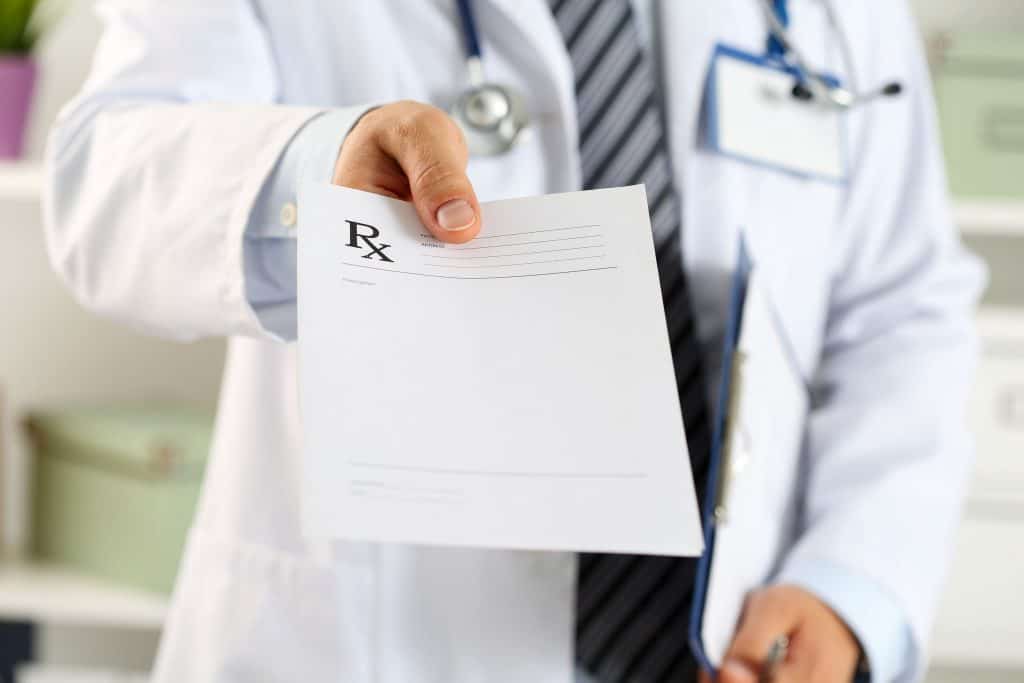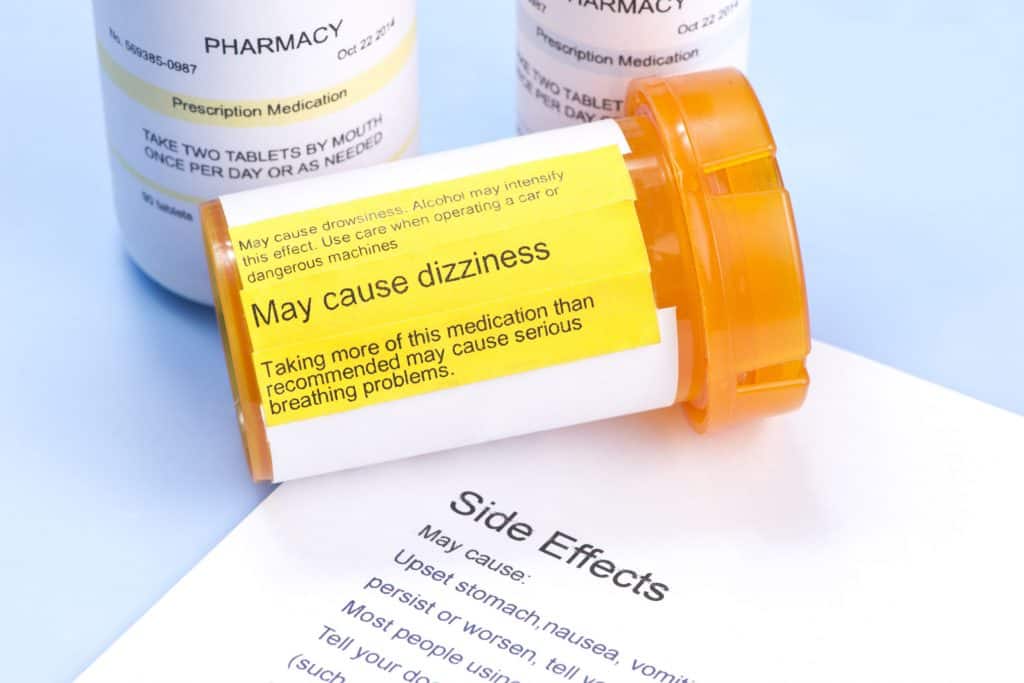Most Important Questions You Should Ask When You Get A New Prescription
Posted by Prescription Hope - See Editorial Guidelines (Last Updated On: Mon Jul 10 2023)
Every day patients are getting a new prescription for medicines to treat their medical condition. In 2016 the CDC estimated that 2.6 billion drugs were ordered, and about 73% of doctor’s visits involved drug therapy.
Too often, the patient rarely receives specific instructions on what the drug will do and how it should be taken. Lengthy conversations are not the norm in doctor’s offices. So, you may need to be the one to prompt discussions around what medications you are being prescribed.
That is why in this article, we will discuss questions you should ask when you get a new prescription.
What Does This Medication Do?

This should be one of the first questions you ask your doctor if your doctor doesn’t explain this right off the bat. You should have an understanding of what this medication is supposed to treat. What symptoms should it ease, and how will it treat your condition.
Some medications are self-explanatory for what they do, but others not so much. If you do not understand what the medication being prescribed is supposed to do, then how will you know if it is working?
How Does This Medicine Work?
Many individuals may not care how specifically how the medicine will work, but it is important to understand. Understanding how the medicine works will help you know if the medication is working correctly.
Is There A Generic Version Of This Medication?
Brand name medications are known to be much more expensive than generic versions. Generic versions of brand name medications contain the same ingredients and provide the same benefit. Generic versions still have to undergo FDA approval to ensure safety and efficacy.
Not all medications are available in a generic version, which is why you should ask your doctor. They may not directly give you a new prescription for the generic version to take. This can cost you more money out of your pocket than what is really needed.
On the other hand, if your insurance covers the majority of the brand name medication, then it may be cheaper in an out-of-pocket sense to stick with the brand name.
Are Allergic Reactions Common?
You should talk to your doctor about the ingredients contained in the drug. Share what allergic reactions you have had in the past with your doctor so that they can determine if the medication will be safe for you to take.
Allergic reactions can be life-threatening, make this a fundamental question to ask. You should ask your doctor if allergic reactions have been common with this medication and if they have been severe.
How Long Do I Need To Take This Medication?

Certain medications require you to take the full amount prescribed. Even if you are feeling better, there are certain medicines that you should take for the length of time they have been prescribed. The reason for this is because if you stop taking medicine as soon as you start feeling better, then the condition you are treating may come back more aggressively.
Your doctor may specifically prescribe a length of time for you to take your medicine. You should ask them how strictly you need to follow that length of time. The last thing you want is your illness coming back more aggressively.
What Side Effects Do I Need To Know About?
You should be acutely aware of what side effects you are at risk for when you get a new prescription. You may be at a higher risk for some side effects versus others. Therefore, you and your doctor should determine together if the benefits of the medication outweigh the risks.
It is crucial when asking this question to know what underlying medical conditions you may have, as well as your family medical history. Knowing these things will help you determine if you have a higher risk for certain side effects that may be severe.
How Do I Take This Drug?
Some medications are required to be taken in certain ways. For example, some drugs have to be taken two or three times a day but have to be spread out during the day, and you can’t take them at the same time.
On top of this, you need to know how the drug is administered. Medications can be administered by swallowing, inhaling, letting the tablet dissolve in your mouth, or injected. Depending on how the drug is administered, you need to make sure you have the necessary equipment you need to give the medicine.
For example, an inhaled medication may require an inhaler plus cartridges that contain the medicine. An injected medication will require a syringe or a needle. Your doctor should give you clear instructions on how to administer these types of medicines.
When it comes to swallowing pills and capsules, you may need to ask if the tablet can be split in two or crushed. This makes swallowing the medicine easier for those that may have trouble with swallowing a whole pill.
Are There Any Drug Interactions I Need To Know About?
Your doctor should be aware of what other medications you are taking, including over-the-counter drugs. Various medicines can interact with each other if they are taken together. So, after your doctor gives you a new prescription for a medication, ask them if any drug interactions can occur.
Drug interactions can cause severe adverse reactions, some that may be life-threatening.
Is There Anything I Should Avoid While Taking This Drug?
Some medicines may require you to avoid certain foods or tasks. Grapefruit and grapefruit juice is often a food/juice that is told to be avoided when taking various medications. Alcohol is also often to be avoided when taking most medications. Specific drinks and foods may increase the absorption of the medicine into the blood, which can put someone at an increased risk for severe adverse reactions.
Some medicines can make you feel drowsy, tired, or have decreased coordination. Driving and operating machinery should be avoided when taking medications that can cause this.
The foods and drinks that you should avoid will vary from medication to medication. Therefore, ask your doctor this question after getting a new prescription.
What If This Drug Doesn’t Work?
In some cases, the medication being prescribed may not work. To give you an idea of what other options you have, you should ask your doctor what the next step is if the drug prescribed doesn’t work.
Are There Natural Remedies That Will Provide The Same Benefit?
There are many medications on the market today that simulate natural remedies. The medication just makes it easier to get the benefit quickly. If a natural remedy is available, then it may be more beneficial and more cost-effective for you.
For example, those with type 2 diabetes may be able to treat their condition with a strict diet and exercise. So, rather than paying for medication, they are able to control their blood sugar levels by eating right and staying physically active. However, many people do benefit from medication. Therefore, when getting a new prescription, ask your doctor about your options for natural remedies.
Does Prescription Hope Cover This Medication?
Prescription Hope is a nationally recognized patient advocacy program. The team at Prescription Hope utilizes the patient assistance programs offered by pharmaceutical manufacturers to obtain brand name medications for individuals at a set, affordable price .
The program covers over 1,500 different brand name medications. Enroll with Prescription Hope’s medication access service and pay just $60.00 a month through Prescription Hope’s medication access service for each of your medications.

